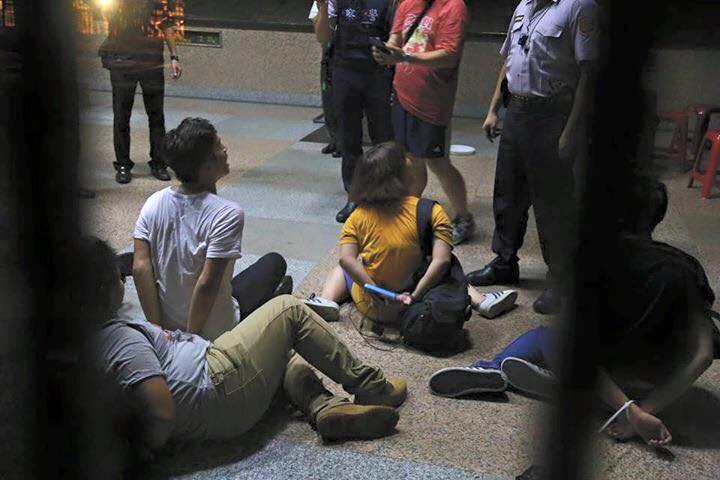Taipei mayor has apologised for the arrests of three journalists at a student protest against a set of controversial high school curriculum guidelines.
Ko Wen-je, elected Taipei mayor in November, said in a statement, “Journalists’ freedom to report the news is protected by the constitution. I apologise for the violation of press freedom by Taipei police last night (July 23).”
He said that he had asked police to review a policy of coordinating with journalists for protest coverage, and seek consensus with press organisations in order to “better protect interests of journalists”.
“The Taipei mayor has an obligation to protect press freedom,” Ko said. “Prosecutors are now investigating the incident. I hope they will be able to clarify what happened and reassure the public as soon as possible.”
Ko added words of support for student protesters: “As a parent of a high school student, I would like to tell you, ‘Children, you are very courageous. Take care!’”

On Thursday, around 200 students surrounded Taipei’s education ministry building to oppose the perceived “China-centric” high school curriculum guidelines, which are due to be introduced to schools across Taiwan in September.
Thirty students were reportedly arrested after forcing their way into the building. Three reporters were also taken away while covering the protests.
One of the affected media outlets, Liberty Times, issued a statement expressing “strong objection to the police’s act of restricting press freedom”.
The three journalists were subsequently released on Friday, after they refused to pay a NTD$10,000 bail, according to Taiwanese newspapers. But they were ordered to stay in their respective residences.
Taiwan’s current government, led by President Ma Ying-jeou of the pro-reunification Kuomintang (KMT), has made a series of changes to high school curriculum guidelines since Ma took office in 2008. In 2014, authorities announced new adjustments to the guidelines that were widely considered China-centric.
A number of protests have taken place in response to the perceived “black box”, or non-transparent, policy making process of the Taiwanese government. Around ten students broke into Taipei’s Education Administration building last week, but none were arrested. Student groups had promised to step up the campaign.

Supporters of the new curriculum guidelines said that the changes are in accordance with the constitution. A journalist for United Daily News wrote that changes such as referring to China as “mainland China” rather than “the mainland” prove that the new guidelines are not China-centric.
Tsai Ing-wen, presidential candidate of the pro-independence Democratic Progressive Party, and 13 pan-green mayors and county governors issued a joint statement on Friday in support of the student protesters. They asked the education ministry to scrap the “flawed” guidelines and refrain from pursuing legal action against students.
But Hung Hsiu-chu, KMT’s presidential candidate, said on Friday that “some political party hid behind the struggles of young people”, and asked politicians to “leave the children alone” and “return dignity to the police”.
Ko was elected as the mayor of Taipei last year despite having no formal political experience. He was a medical professor at the National Taiwan University before becoming the first non-KMT mayor of Taipei since 1998.
Analysts said that his election signified a massive change in Taiwan’s politics, as Ko pledged to end bipartisanship and avoid party influences when he ran for mayor. He is also known for his direct manner, personable image and commitment to ending corruption.
